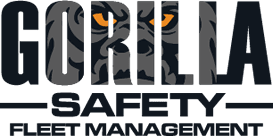Understanding ELDs and FAQs
Congress passed the Moving Ahead for Progress in the 21st Century (MAP-21) bill in 2012, which required the commercial trucking industry to switch to Electronic Logging Devices (ELDs) and for the Federal Motor Carrier Safety Administration (FMCSA) to create rules for these ELDs. The goal was to bring the trucking industry into the new century with current technology designed to cut costs and improve accuracy and safety.
What is an Electronic Logging Device?
Simply put, ELDs are electronic systems that record a driver’s Hours of Service (HOS). The ELD is meant to replace paper logs that drivers and companies have relied on since 1938. By December 16, 2017, all CDL drivers who keep a Record of Duty Status (RODS) will be required to use some type of ELD.
Electronic logging devices must be able to do very specific things:
- Connect to a truck’s engine to record if it’s moving or not
- Allow a driver to log-in to select their status: off-duty, on-duty, or on-duty but not driving
- Display a driver’s RODS at a quick, easy glance
Take a look at the Frequently Asked Questions below to learn more:
What is an Electronic Logging Device(ELD)?
An Electronic Logging Device is a new technology that logs the time a driver spends driving the vehicle and other aspects of the Hours of Service (HOS) records to ensure more accurate records. The vehicle’s engine is monitored, allowing the ELD to collect information on whether the engine is running, whether the vehicle is moving, how many miles have been driven, and how long the engine has been running. Makers of ELDs must certify that their ELDs meet the technical standards put in place by the FMCSA.
How do we sign up for the ELD?
Call or email us to assure your account is properly configured. If you register through the website, you will not have all of the functionality required to be ELD compliant.
How are ELDs different from Automatic On Board Recording Devices (AOBRDs)?
Each Electronic Logging Device will have to be certified and registered with the Federal Motor Carrier Safety Administration (FMCSA). By the ELD Rule Effective Date, February 8, 2016, a list of registered devices will be available.
How do ELDs benefit my fleet?
Tracking the HOS will be easier and more accurate for everyone. Deliberate and unintentional HOS violations will be prevented. Drivers will be able to avoid fines from mistakes in their paper logs. Following the HOS rules will help drivers have time for enough rest and to drive safely.
Are portable ELDs allowed?
Yes. Portable Electronic Logging Devices, such as the Gorilla Safety app are allowed, as long as they are mounted and secured in a fixed position while the vehicle is being driven.
Can an ELD be used with a smartphone or other mobile or wireless device?
Yes, as long as it complies with all FMCSA technical requirements and is certified and registered with the FMCSA. The Gorilla Safety app is fully compliant with FMCSA regulations.
Are ELDs required to track vehicle performance?
No, Electronic logging Devices are not required to collect performance information, such as speed, braking, steering, or other driving functions. ELDs are only required to log info related to HOS regulations.
How precise is the vehicle location information recorded by an ELD?
Location is accurate within an approximate one-mile radius during the on duty driving status. When the driver is off-duty, location tracking is accurate within a 10-mile radius.
What about engine synchronization?
All compliant Electronic Logging Devices must be able to monitor the vehicle’s engine operation, while capturing whether the engine is on or off, if the vehicle is in motion, how many miles driven, and the amount of hours the engine has been running.
Can the mileage determined from a GPS system be substituted for the information that can’t be easily obtained from a vehicle electronic control module (ECM)?
No, the Electronic Logging Device must be able to monitor the engine itself in order to record the necessary information. GPS systems can’t be used as a replacement.
Why does an ELD have to monitor the engine hours?
This serves a way to cross-reference the information from the odometer.
Can an ELD have a way to warn drivers about reaching their HOS?
It is not a requirement, but this feature is allowed. A warning or alert can be made so drivers know when they are reaching their HOS limits. This is a feature of the Gorilla Safety app.
Why do ELDs have to be registered and certified?
FMCSA regulations require registration and certification. Any Electronic Logging Device that hasn’t been registered and certified by the manufacturer isn’t FMCSA compliant. The Gorilla Safety app is 100% compliant with all FMCSA regulations.
I registered but am unable to use the ELD functionality. What do I need to do?
In order for the ELD functionality to work, you must have both the app and the hardware device that links to the truck’s network. Contact us in order to get setup properly and begin using the ELD.
About the Electronic Logging Device (ELD) Rule:
What does the ELD Rule say?
The Electronic Logging Device Rule address four main points:
- Electronic Logging Devices are required for all commercial drivers who are required to prepare hours of service records of duty status
- The rule determines Electronic Logging Device performance and design standards, along with requiring certification and registration with the FMCSA.
- Sets the rules for what supporting documents drivers and carriers are required to keep.
- Prohibits using the data collected by the Electronic Logging Device to harass drivers. Drivers who believe they have been harassed are provided recourse through the ELD rule.
Who is required to use an ELD?
All motor carriers and drivers who are currently required to keep a record of duty status under HOS regulations will be required to follow the Electronic Logging Device rule.
Does the ELD rule apply to buses?
Yes, passenger buses must also follow the Electronic Logging
Device rule.
What are the exceptions to the ELD rule?
There are a few exceptions to the Electronic Logging Device rule:
- Drivers who don’t keep RODS
- Drivers who keep RODS for no more than 8 days out of every 30.
- Drivers of vehicles manufactured before 2000
- Drivers transporting an empty vehicle for sale, lease, or repair - as long as the vehicle isn’t part of a shipment.
Is there an exception for drivers who infrequently keep records of duty status?
An exception was made for those drivers who use RODS no more than 8 days in any 30-day period.
When is ELD required for drivers?
December 16, 2017 is the deadline for any carrier or driver currently using a paper log. By 2019, anyone using a non-ELD AOBRD must be using an Electronic Logging Device.


